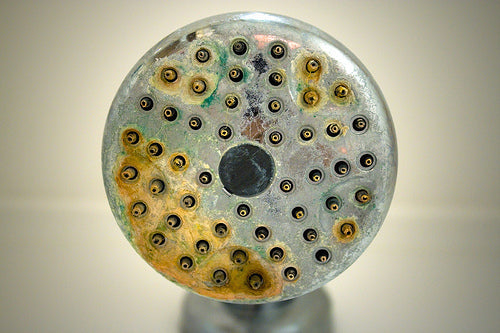5 Ways to Find Out if you Need a Water Softener
Do you suspect you have hard water in your home?
Unfortunately, this issue affects many households in America. In fact, approximately 85% of US homes have a hard water problem.
Hard water can be defined as water containing a high amount of minerals such as calcium and magnesium carbonates. The mineral content is measured in milligrams per liter. If the mineral content ranges between 60 mg/l and 120 ml/l, your water is moderately hard, but anything above 120 mg/l is considered hard water.
Unfortunately, having hard water can be a real issue as it might significantly shorten the lifespan of your appliances, plumbing system, tiles and even damage your skin.
However, the great news is that, with the help of a water softener, you can quickly achieve lower mineral content levels.
Are you wondering how to tell whether you need a water softener in the first place?
To help you tackle this serious issue, we’ve highlighted five signs that you need a water softener in your home.
Test your Water
Testing your water with a hard water testing kit is without a doubt one of the best ways to tell whether your home could benefit from a water softener.
Now, water hardness can be measured using a quick in-home testing method. However, if you want a more accurate approach, you can purchase a commercial hard water testing kit or even send a sample to a third-party lab.
DIY testing method: grab a clear and clean empty bottle and fill one-third of the bottle with water. Add a few drops of dish soap and shake the bottle for a few seconds. You should see a lot of bubbles appear and clear water towards the bottom. If the water appears cloudy and there aren’t any bubbles, it most likely means you have hard water.
Commercial testing kit: these kits include test strips and a color chart. Dip the strip in a glass of cold water for a few seconds. Then, match the color to the color chart to find out whether you have hard water or not. Note that there are many affordable water hardness testing kits available from Amazon.
Staining
Is your glassware looking milky and cloudy every time you wash it? Have you noticed stubborn and ugly stains in your sinks, showers, and toilets?
If the answer to these questions is yes, the culprit is most likely hard water. Indeed, as mentioned before, hard water contains high calcium, iron, and magnesium levels, which, unfortunately, tend to deposit onto your dishes and glassware every time you put them in the dishwasher, leaving white stains behind. The issue is that even the best detergents on the market might not be efficient at cutting through the high level of mineral deposits to dissolve and rinse away dirt and grime. As a result, the best solution is to purchase a water softener as it will remove calcium and magnesium particles from your water.
And this will, in turn, prevent limescale deposits from staining your dishes, sinks, or toilets and reduce the amount of detergent you need.
Scale Buildup
Stubborn soap scum in your bathtub, white crust around your faucets and showerheads, or white buildup on your kitchen fixtures are all signs that you have hard water. And even though this can feel like a cosmetic problem, this mineral deposit buildup accumulates inside your water appliances, drains, and pipes. This will significantly impact their lifespan and can lead to some serious plumbing issues. That’s why, if you notice any hard-to-remove buildup on appliances and fixtures, you should purchase a water softener.
Faded Laundry
Nobody likes crunchy sheets, and towels, or faded clothes. Well, unfortunately, this is exactly what you’ll experience when doing the laundry with hard water. That’s because the high mineral content in hard water bonds with the soap. This creates a curd that prevents the detergent from penetrating the fibers and washing your clothes effectively, leaving them feeling stiff.
Also, iron tends to stain white clothes creating premature yellowing. So, if your clothes seem to fade and wear out really fast and your towels or sheets never feel soft and 100% clean, make sure to check the hardness of your water. Investing in a water softener might be the best solution to keeping your clothes, sheets, and towels feeling and looking like new.
Dry Skin
Does your skin feel dry after you just had a shower or a long relaxing bath? Do you find that you always need to apply lotion after your shower to soothe itchy or irritated skin?
If so, you can probably blame it on hard water.
That’s because the minerals contained in hard water tend to dry out the skin by clogging the pores and sucking the oil and moisture from it. What’s more, hard water leads to soap scum building up, creating a fine film on the surface of your skin over time. This, in turn, weakens your moisture barrier causing dryness and irritation. So, if you notice any itching or dryness after your daily shower, a water softener might be a great investment as it’ll help prevent any water-related skin problems.
A Final Word
With an estimated 30 to 50% decrease in the lifespan of appliances and an extra $800 a year spent on cleaning items, hard water issues can turn out to be extremely costly over time. That’s why buying a water softener can prove a wise investment, especially as you’ll also be able to protect your plumbing system and your skin in the process. So, make sure to look out for any of the signs listed above and invest in a water softener if you notice any of them.






